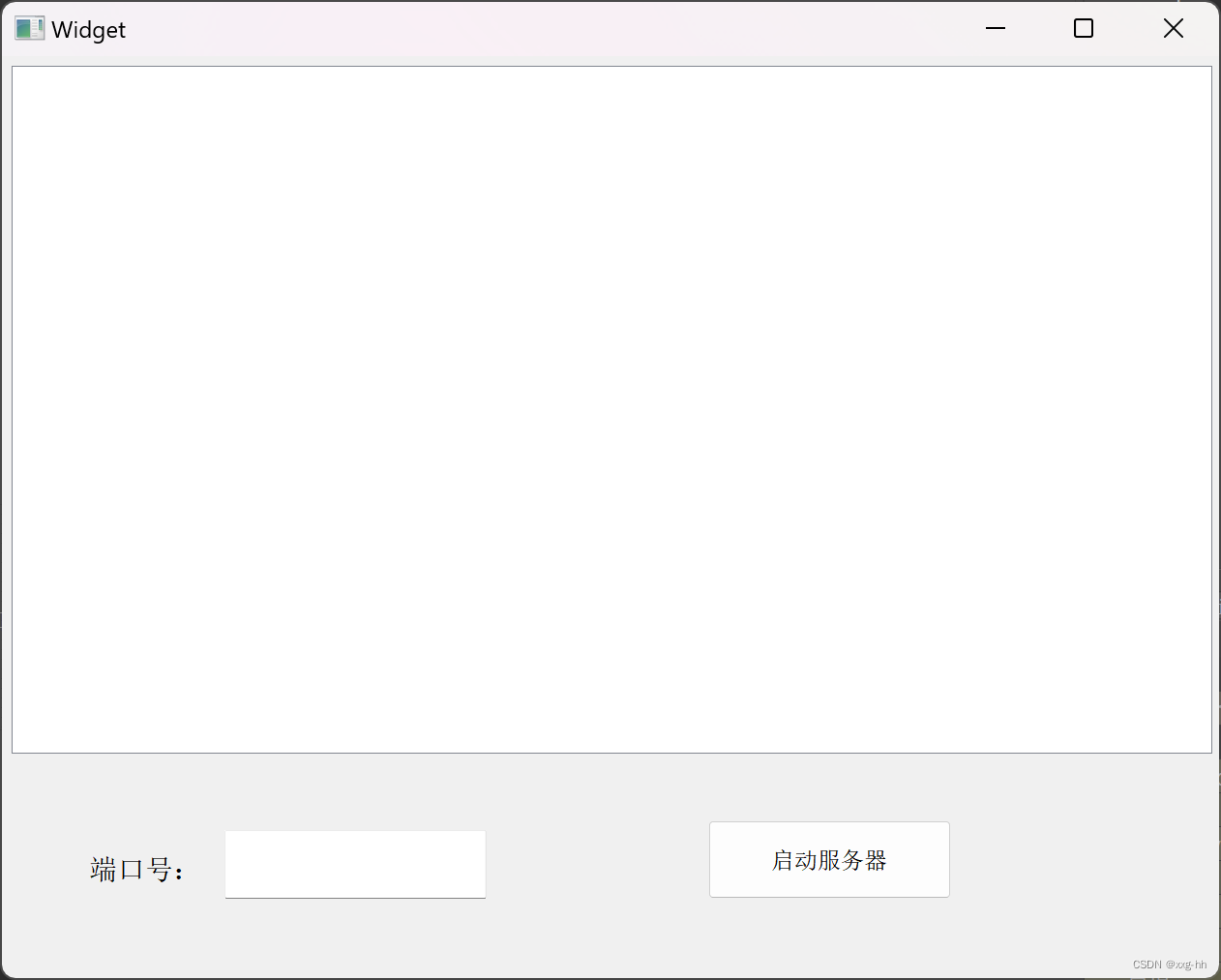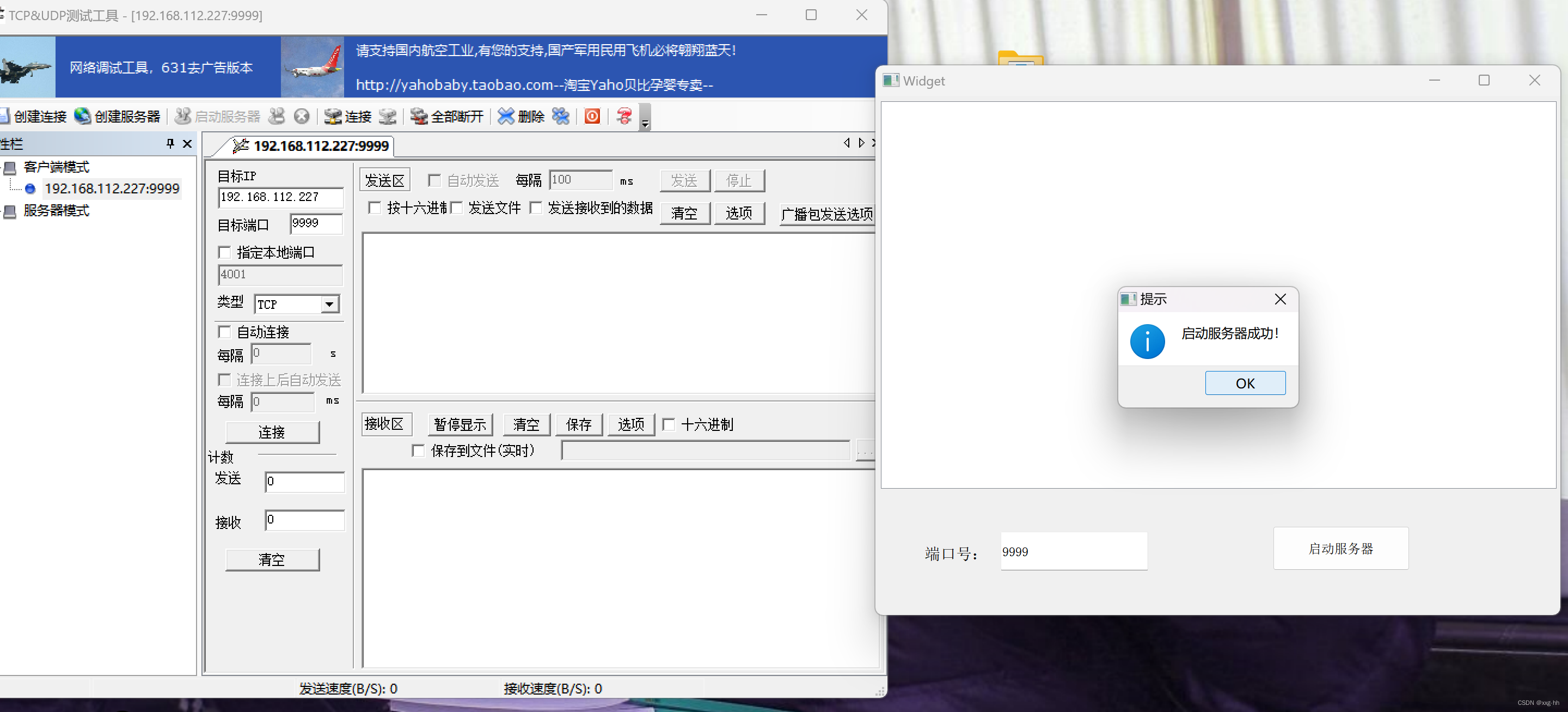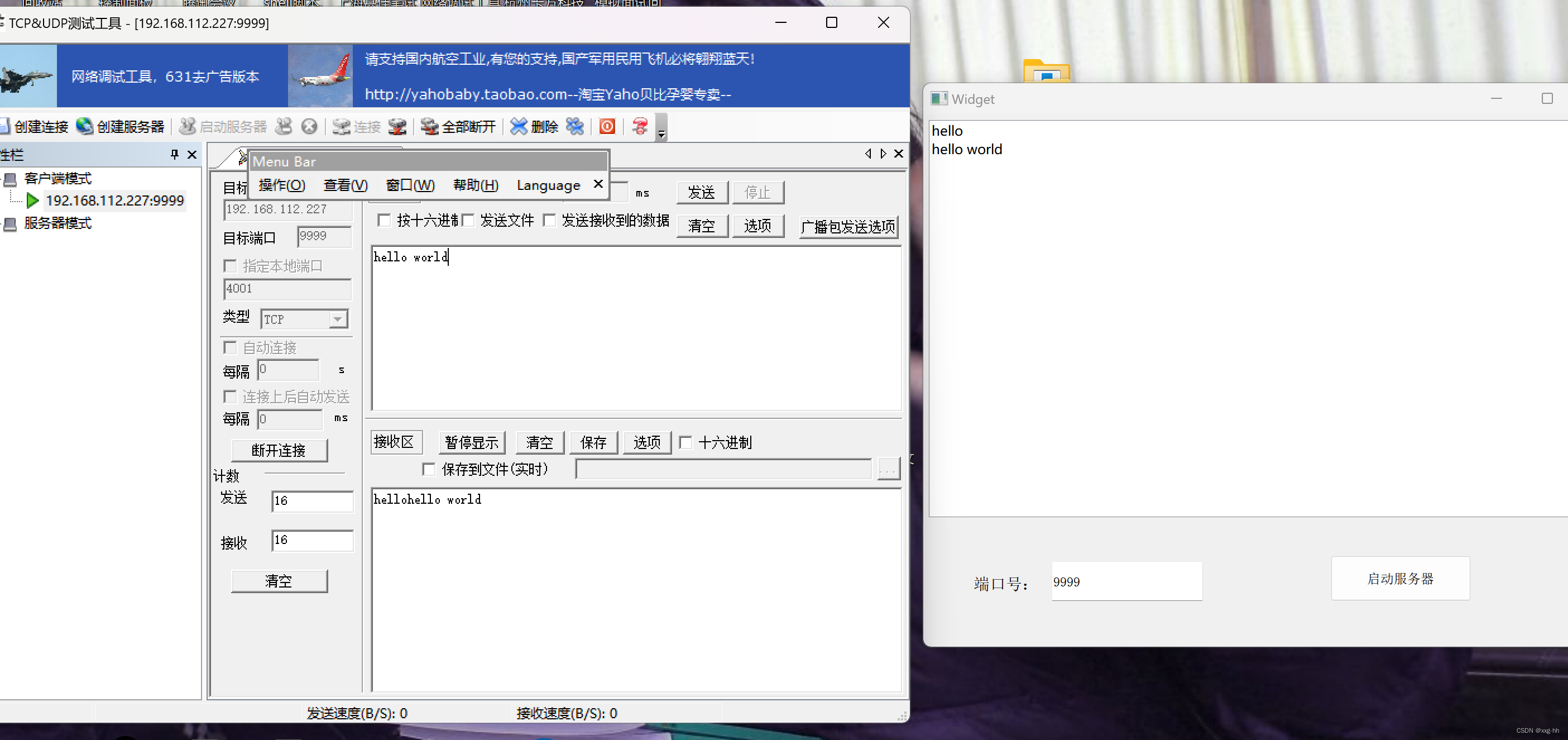0112qt
发布时间:2024年01月13日
?.pro:
QT += core gui network
greaterThan(QT_MAJOR_VERSION, 4): QT += widgets
CONFIG += c++11
# The following define makes your compiler emit warnings if you use
# any Qt feature that has been marked deprecated (the exact warnings
# depend on your compiler). Please consult the documentation of the
# deprecated API in order to know how to port your code away from it.
DEFINES += QT_DEPRECATED_WARNINGS
# You can also make your code fail to compile if it uses deprecated APIs.
# In order to do so, uncomment the following line.
# You can also select to disable deprecated APIs only up to a certain version of Qt.
#DEFINES += QT_DISABLE_DEPRECATED_BEFORE=0x060000 # disables all the APIs deprecated before Qt 6.0.0
SOURCES += \
main.cpp \
widget.cpp
HEADERS += \
widget.h
FORMS += \
widget.ui
# Default rules for deployment.
qnx: target.path = /tmp/$${TARGET}/bin
else: unix:!android: target.path = /opt/$${TARGET}/bin
!isEmpty(target.path): INSTALLS += target
?widget.h
#ifndef WIDGET_H
#define WIDGET_H
#include <QWidget>
#include <QTcpServer>//服务器类
#include <QMessageBox>//消息对话框类
#include <QTcpSocket>//客户端类
QT_BEGIN_NAMESPACE
namespace Ui { class Widget; }
QT_END_NAMESPACE
class Widget : public QWidget
{
Q_OBJECT
public:
Widget(QWidget *parent = nullptr);
~Widget();
private slots:
void on_startbtn_clicked();
public slots:
void newConnection_slot();//newConnection()函数对应的槽函数声明
void readyread_slot();//readyread_slot()函数对应的槽函数声明
private:
Ui::Widget *ui;
QTcpServer *server;//定义一个服务器指针
QList<QTcpSocket*> socketList;//定义一个存放服务器套接字的容器
};
#endif // WIDGET_H
?widget.cpp
#include "widget.h"
#include "ui_widget.h"
Widget::Widget(QWidget *parent)
: QWidget(parent)
, ui(new Ui::Widget)
{
ui->setupUi(this);
//给服务器指针实例化空间
server=new QTcpServer (this);
}
Widget::~Widget()
{
delete ui;
}
//启动服务器按钮对应的槽函数处理
void Widget::on_startbtn_clicked()
{
quint16 port=ui->portEdit->text().toUInt();//toUInt的返回值是uint 而listen()函数需要的port是quint16,所以定义一个quint16类型的port来接
//将服务器设置成监听状态
//listen()函数的原型:
//bool listen(const QHostAddress &address = QHostAddress::Any, quint16 port = 0);
if(server->listen(QHostAddress::Any,port))
{
//到这里监听成功
//设置提示消息
QMessageBox::information( this,"提示", "启动服务器成功!");
}
else
{
//监听失败
QMessageBox::information( this,"提示", "启动服务器失败!");
}
//到这里就能确定有无客户端连接了,有连接的话
//将服务器自动发送的newConnection()函数与自定义的槽函数连接
connect(server,&QTcpServer::newConnection,this,&Widget::newConnection_slot);
}
//newConnection()函数与自定义的槽函数的实现
void Widget::newConnection_slot()
{
//获取最新的客户端套接字
QTcpSocket *s=server->nextPendingConnection();
//将客户端套接字放到容器中
socketList.push_back(s);
//客户端自动发送一个readyRead()信号
connect(s,&QTcpSocket::readyRead,this,&Widget::readyread_slot);
}
//readyread()函数与自定义的槽函数的实现
void Widget::readyread_slot()
{
//循环,刚上线立刻下线的客户端的套接字也会被保存一份,发送时不需要发给这些客户端,移除无效的客户端
for(int i=0;i<socketList.count();i++)
{
//判断是和否符合移除条件
if(socketList.at(i)->state()==0)
{
socketList.removeAt(i);
}
}
//剩下的就是可以发送消息的客户端
for(int i=0;i<socketList.count();i++)
{
//如果不为空,就是此客户端发来了消息
if(socketList.at(i)->bytesAvailable()!=0)
{
//读取客户端发来的消息
QByteArray msg= socketList.at(i)->readAll();
//将信息放入ui界面上
ui->msgWidget->addItem(QString::fromLocal8Bit(msg));
//将信息发送给所有客户端
for(int j=0;j<socketList.count();j++)
{
socketList.at(j)->write(msg);
}
}
}
}
?
?
?
文章来源:https://blog.csdn.net/weixin_57731002/article/details/135565547
本文来自互联网用户投稿,该文观点仅代表作者本人,不代表本站立场。本站仅提供信息存储空间服务,不拥有所有权,不承担相关法律责任。 如若内容造成侵权/违法违规/事实不符,请联系我的编程经验分享网邮箱:chenni525@qq.com进行投诉反馈,一经查实,立即删除!
本文来自互联网用户投稿,该文观点仅代表作者本人,不代表本站立场。本站仅提供信息存储空间服务,不拥有所有权,不承担相关法律责任。 如若内容造成侵权/违法违规/事实不符,请联系我的编程经验分享网邮箱:chenni525@qq.com进行投诉反馈,一经查实,立即删除!
最新文章
- Python教程
- 深入理解 MySQL 中的 HAVING 关键字和聚合函数
- Qt之QChar编码(1)
- MyBatis入门基础篇
- 用Python脚本实现FFmpeg批量转换
- 回溯法:概念以及解决迷宫老鼠问题
- 风速预测 | 基于深度学习的风速预测模型(Matlab)
- 零基础学C语言——循环与控制结构
- Python 新规范 pyproject.toml 完全解析
- MS761比较器可兼容MAX9030
- 基于springboot+vue的校园二手交易市场
- Civil 3D安装教程,免费使用,带安装包和工具,一分钟轻松搞的安装
- 实践案例分享|广发证券——夯实数据底座,赋能敏捷场景
- 致远OA如何开发 第二篇
- 电脑免费硬盘数据恢复软件EasyRecovery16永久免费版